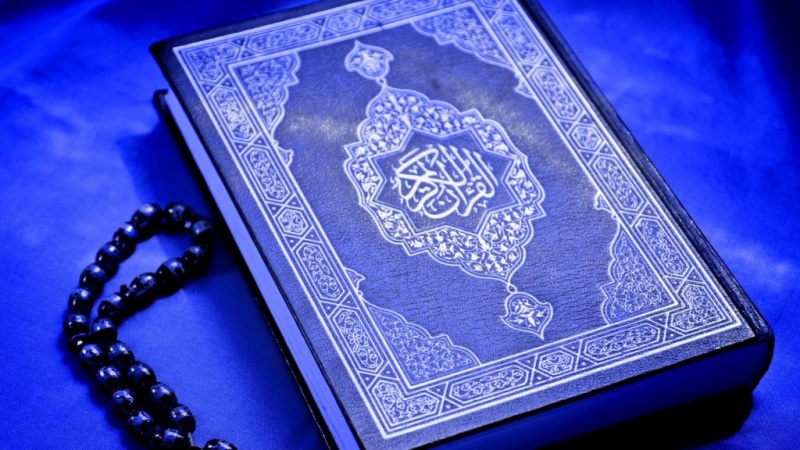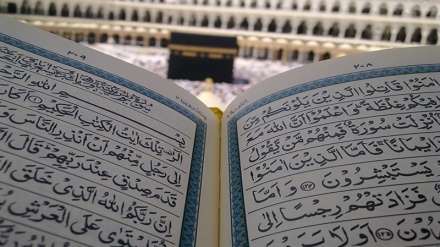Path towards Enlightenment (1023)
Salaam, and welcome to our latest episode of “Path towards Enlightenment”, which is an endeavour to make you and us familiar with an easy and fluent explanation of God’s Final Scripture to all mankind, the holy Qur’an that was revealed to the Last and Greatest of all Messengers, Prophet Mohammad (blessings of God upon him and his progeny).
Today we explain to you the last six Ayahs of “Surah Mulk, the number 67 in the serial order of compilation of the holy Qur’an. It was revealed in Mecca and opens with the sentence “Blessed is He in Whose hands is all sovereignty”, thus deriving its name from “Divine Sovereignty” or “Mulk” in Arabic. It is also called “Blessed” from the opening word “Tabarak”. This Surah challenges the disbelievers with declarations of God’s Infinite Power over them and over everything else in the world, in afterlife, and in the universe by focusing on the marvelous and orderly system of creation. It also describes the regret the disbelievers will express on the Day of Resurrection.
It is highly recommended to recite Surah Mulk every night.
We start from where we left you last week, and here are Ayahs 25, 26, and 27:
“They (the unbelievers mockingly) say: When will this promise (of resurrection) be fulfilled, should you be truthful?
“Say (O’ Prophet): Its knowledge is only with Allah and I am only a manifest warner.
“When they see it (punishment of the Day of Resurrection) brought near, the faces of the unbelievers will be distorted, and [they will be told], ‘This is what you used to ask for!’”
If you remember, in our explanation of the previous Ayahs of this Surah last Friday, we said no power can stand against the Will of the Almighty Creator, which means without the least doubt Allah has the Power to revive the dead, since it is He Who in the first place created us from nothing and provided us with all amenities.
The Ayahs which we recited to you now are expression of doubts by those who lack belief in the facts and realities of creation and raise absurd questions regarding the Day of Resurrection and the Final Judgement. They ask prophets to tell them the exact time of resurrection, and in reply are told that the mission of the prophets is only to warn and guide mankind to the path of truth. None except the Almighty Creator knows the exact time of that inevitable occurrence.
On being resurrected, those who had died in the state of disbelief and denial will be horrified at the approach of the terrible punishment whose very sight will make their faces discoloured and distorted. They will be told this is the reality in which they used to deny by mocking at the Prophets and Saints and telling them if Divine Punishment exists then make us see it.
These Ayahs teach us that:
- Lack of knowledge of the reality of resurrection is no reason to deny it.
- The mission of the Prophets was to convey the message of Allah by warning of the consequence of disbelief, and giving tidings to believers.
- On the Day of Resurrection and Final Judgement, the unbelievers will be horrified at the sight of the approaching punishment they used to deny.
Now let us listen to Ayahs 28 and 29 of the same Surah:
“Say, ‘Tell me whether Allah destroys me and those with me, or He has mercy on us; who will shelter the unbelievers from a painful punishment?’
“Say (to them), ‘He is the All-Beneficent. We have faith in Him and in Him do we trust; soon you will know who is in manifest error.’”
The pagan Arabs and the hypocrites who were Muslims in name only and not at heart, conjectured that though their plots and armed attacks have failed Islam will be no more when the Prophet passes away. Here, the unbelievers are told that whatever happens to the Prophet and his followers, the fate of the faithless is sealed and there is no escape for them from Divine punishment, both in this world and on the Day of Resurrection.
As for the faithful or the true believers who are obedient to Allah the All-Beneficent, they will receive rewards for their sincere service to Islam and mankind, while the unbelievers will realize it is they who been in manifest error.
These Ayahs teach us the following:
- The enemies of Islam desire the death and destruction of the believers, but they cannot do anything in view of the fact that the Will of Almighty Allah is superior to all and everything, which means there is no escape from punishment for the disbelievers.
- Faith means having trust in Allah, submission to His Will, and fulfillment of Divine Commandments, because it is He Who is the All-Beneficent Creator Who expects goodness and virtue from the creation.
- It will be too late for the unbelievers to realize the facts and avoid Divine punishment from which there is no escape on the Day of Resurrection.
In conclusion of this week’s episode which marks completion of the explanation of Surah Mulk as well, here is Ayah 30:
“Say, ‘Tell me, should your water sink down [into the ground], who will bring you running water?’”
This is a pointer to a great Divine Sign. The water needed by mankind for survival is through wells, springs, rivers, and lakes. Rainfall, after refreshing the environment, reviving agriculture, and filling reservoirs, seeps into the ground, which is made up of two different layers – permeable and impermeable. The permeable layer absorbs water while the impermeable layer saves it for the benefit of mankind to be procured through digging wells and drilling deep holes. If the entire earth was permeable, rain water would sink down to the lowest depths out of reach of mankind, and if it were entirely impermeable, water would remain on the ground flooding cities and turning into vast marshlands, thereby making life miserable for human beings. It is only Allah the Almighty Creator Who provides water, through rainfall and preservation of it underground at reachable levels.
From this Ayah we learn that:
- A true believer does not regard material bounties as permanent and knows that at any time these will end, which means the real bounty is faith in the Almighty Creator and obedience to His commandments.
- It is obvious that those who do not believe in God have no one to beseech for rains in case of drought.
Goodbye and God bless you until we meet against next Friday by presenting you explanation of the next Surah, titled “Qalam” or Pen.
RM/AS/SS



